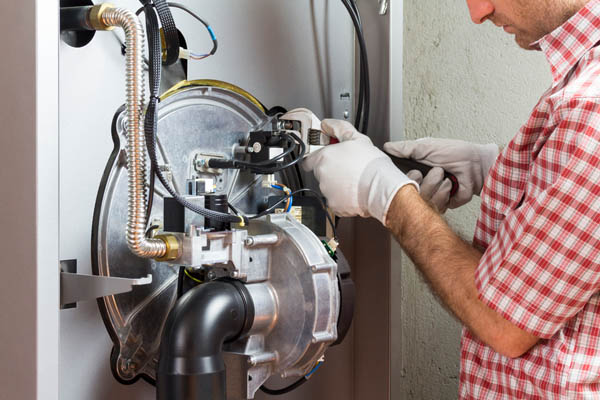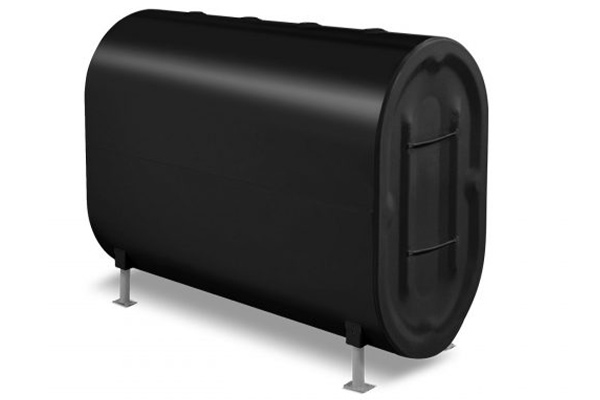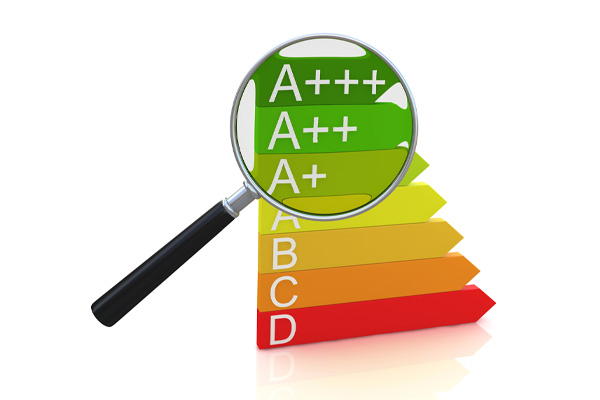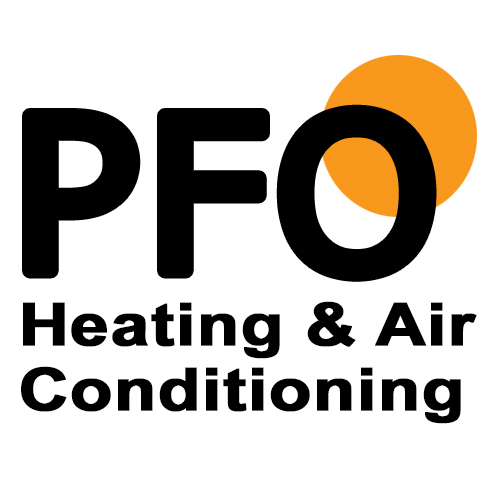
Heating expenses can make up nearly half your monthly energy costs, often surpassing all other household appliances combined. It’s wise to direct attention to heating practices for those aiming to reduce their energy expenditure. Enhancing efficiency is key, and several impactful methods exist to achieve this, including routine heating oil filter replacements. This article presents a detailed guide about this effective energy conservation technique.
The Critical Role of Routine Heating Oil Filter Replacements
Contents
- 1 The Critical Role of Routine Heating Oil Filter Replacements
- 1.1 Understanding Heating Oil Filters
- 1.2 The Necessity of Routine Heating Oil Filter Changes
- 1.3 Advantages of Regularly Changing Your Heating Oil Filter
- 1.4 Determining the Frequency of Heating Oil Filter Replacements
- 1.5 Recognizing Signs Your Oil Filter Requires Changing
- 1.6 Heating Oil Filter Replacements: A Step-by-Step Guide
- 1.7 Guidelines for Safe Heating Oil Filter Replacements
- 1.8 Conclusion
- 2 Call PFO Heating & Air Conditioning For Reliable Oil Deliveries & More
Continue reading to learn the critical need for regular heating oil filter replacements to uphold your system’s efficiency, extend its lifespan, and keep heating costs manageable.
Understanding Heating Oil Filters

Every fuel oil-powered appliance features a heating oil filter, which acts as a purifying cartridge. This component is essential for eliminating the contaminants in the fuel before it is fed into the burner. By filtering out debris and moisture, it helps prevent blockages at the fuel nozzle and ensures the smooth functioning of the pump. A fully functional filter is imperative to prevent system shutdowns and protect your equipment from damage.
The Necessity of Routine Heating Oil Filter Changes
Filters in heating systems capture contaminants but lose effectiveness as they clog with dirt, reducing or even stopping oil flow and risking debris bypassing the filter. To prevent this, it’s crucial to regularly replace the heating oil filter. While each new filter will eventually need replacement, the process is quick, easy, and vital for maintaining your heating system’s efficiency.
Advantages of Regularly Changing Your Heating Oil Filter

Adhering to a consistent maintenance routine can positively affect your heating system. While it may appear inconsequential, specialists in the field regard replacing your heating oil filter as a critical responsibility for any owner of an oil-fueled boiler or furnace. The significance of this task cannot be overstated. Here are several key benefits that come with regular heating oil filter replacements:
Enhancing the Dependability of Your Heating Oil System
A dirty filter in your heating system can hinder the flow of oil, leading to reduced performance or even complete system failure, especially during colder months. Regularly replacing the filter as part of routine maintenance ensures your system operates smoothly and reliably, preventing issues and maintaining consistent heating.
Preserving Optimal Heating Efficiency

Your heating system’s efficiency level printed on the label inevitably diminishes over time due to wear and tear and dirt accumulation. As efficiency wanes, your furnace will require more fuel to generate the same amount of heat, which is detrimental to your wallet and the environment currently burdened with high carbon emissions. To sustain high efficiency, arranging for professional maintenance annually is advisable. Alongside professional servicing, adhering to the manufacturer’s recommended schedule for oil filter replacements is essential. These maintenance actions are instrumental in keeping your HVAC system operating at its best.
Extending the Lifespan of Your HVAC System
Regularly replacing oil filters is key to the cleanliness and efficiency of your home heating system. New filters prevent clogs and reduce stress on system components, extending their lifespan and the overall operational life of the heating system, often beyond a decade. This practice not only helps avoid early HVAC system replacement costs but also ensures a consistently high-performing heating system, leading to significant long-term savings.
Achieving Substantial Cost Savings
Clean oil filters play a significant role in diminishing energy consumption. Not only does this contribute to environmental preservation by cutting emissions, but it also helps homeowners reduce their energy bills. In times of volatile fuel prices and uncertain supplies, the financial relief from lower heating costs is particularly advantageous. Committing to regular filter maintenance is a smart strategy for sustained cost-effectiveness in home heating.
Determining the Frequency of Heating Oil Filter Replacements
It’s generally advised to replace your heating oil filter at least annually, ideally just before the onset of the colder months, to guarantee seamless operation. Keep a watchful eye on the performance of your system during the winter. Should you notice any decrease in efficiency that might suggest filter clogs, consider adjusting the replacement schedule to semi-annually. Conducting an additional replacement midway through the heating season can help prevent future issues.
Recognizing Signs Your Oil Filter Requires Changing
- Delays in Ignition: Regular users of furnaces or boilers become attuned to the usual performance of their systems. When unusual behaviors arise, such as delayed starts or strange noises, it may signal that the filter is obstructed and hindering your system’s function.
- Dark Smoke: Light-colored smoke is expected from a well-functioning heating system. However, if you notice dark smoke emanating from your chimney, this could indicate that water and other contaminants are passing through an over-saturated oil filter. Reflect on when you last replaced the filter; a prolonged period could mean it’s full of moisture and dirt, signaling that a new filter is due.
- Suboptimal Performance: If your home feels chilly or adjusting the thermostat doesn’t yield the expected increase in warmth, a dirty oil filter could be the culprit. This may also be the case if your system shuts down unexpectedly. The blockage might be within the filter or a related part.
Heating Oil Filter Replacements: A Step-by-Step Guide

- Ensure safety by powering off the system before starting the replacement process.
- Position a catch pan beneath the filter to collect dripping oil and avoid a mess.
- Stop the oil supply by closing the valve on the heating oil tank.
- Carefully remove the oil filter canister’s base.
- Extract the old filter and gaskets.
- Thoroughly clean the canister and the pump strainer to prepare for the new filter.
- Place the new filter into the canister, ensuring it’s seated correctly.
- Reattach the canister to its original position.
- Reopen the fuel supply valve and restore power to the system.
- Release trapped air by loosening the air bleeder screw.
- Initiate the oil burner and monitor for proper operation.
- Check for any signs of oil leaks around the new filter.
- Upon confirming the system’s functionality, responsibly dispose of the used filter.
Guidelines for Safe Heating Oil Filter Replacements
- Oil can irritate your skin. Wear protective gloves to shield your skin from the irritant properties of heating oil, and consider an apron to prevent staining your clothes.
- Handle the filter canister carefully, supporting it firmly to prevent it from falling, which could damage the pipes.
- During the replacement process, keep track of the small and vital components, such as the rings and washers. This ensures nothing gets misplaced.
- Remain alert for leaks after installation, as they may not present immediately but can appear within the following 48 hours.
- Given the potential mess and hazards involved in changing an oil filter, it’s wise to enlist a professional’s help if you have any reservations.
Conclusion
Oil filters are crucial for preventing clogs and ensuring the smooth operation of your heating system, but they have a finite lifespan. Regular replacement is essential for the system’s efficiency, reliability, and overall performance. Commit to a schedule of filter changes, and if the task seems daunting, don’t hesitate to seek professional help. They can provide a hassle-free filter replacement, helping you maintain a warm and efficient home.
Call PFO Heating & Air Conditioning For Reliable Oil Deliveries & More
When you’re searching for a reputable heating oil delivery company, you can contact PFO Heating & Air Conditioning.
We offer the best home heating oil delivery and the most reasonable heating oil prices in the area. We have different delivery plans and financing options so you can customize your oil deliveries to meet your needs. Also, our team of expert technicians provides HVAC services to help improve the performance and efficiency of your HVAC equipment. Our priority is your satisfaction, so we back all of our work with a guarantee. Give us a call today!
Call PFO Heating & Air Conditioning today and learn more about the services we offer. We will be happy to answer all your questions and concerns. Call now!
Click here to contact us now or call us at (800) 253-9001 to find out more! Click the link to view our service area.

Related Articles:



